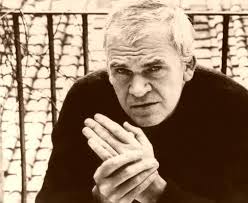Is meaning created through the interaction of man and text? It seems so. In many of his short stories, Borges implies the disturbing supposition that the meaning of literary works is entirely dependent on the varying historical and social contexts in which they are read. In other words, that literary meaning is constructed through mental processes irrevocably tied to location and period. Reading, then, is more central to a text's intellectual "life" than its writing and, consequently, a reader is more important to a text than its writer.
We can see how influential Borges’ ideas were on contemporary writers. For example, in Hopscotch, Cortazar invites the reader to participate in his innovative project by letting the reader choose in what order to read the chapters. In his own words, “For my part, I wonder whether someday I will ever succeed in making it felt that the true character and the only one that interests me is the reader, to the degree in which something of what I write ought to contribute to his mutation, displacement, alienation, transportation.”
If we are to have a high esteem for the reader, we must invite her to the party. Not every sentence needs to be complete, not every plot needs a twist, nor does every flower need a color. Let the reader create alongside the text. Easy prose is akin to baby food. It is time to take the spoon out of the reader’s mouth.




